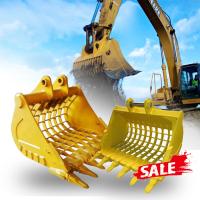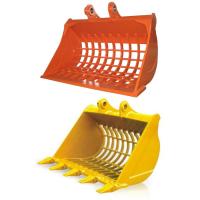Factory wholesale Excavator Skeleton BUCKET , Screen Bucket for
CAT320
Excavator Sieve Bucket
Introduction:
Excavators, with their robust structure and versatile capabilities,
have revolutionized the construction and mining industries. Among
the wide array of attachments available for excavators, the grapple
attachment stands out as a powerful tool for tackling various
tasks. The excavator grapple, with its grid-like design and
gripping prowess, has become an indispensable asset in the hands of
operators. In this article, we will explore the features and
applications of the excavator grapple, highlighting its ability to
enhance productivity and efficiency in demanding work environments.
Design and Construction:
The excavator grapple is designed with a grid-like structure
comprising strong, interlocking teeth or tines. These sharp-edged
components are strategically placed to provide a secure grip on
materials of various shapes and sizes. The grapple is typically
operated using hydraulic cylinders, allowing for precise control
and strong clamping force. The attachment is engineered to
withstand heavy loads and harsh working conditions, ensuring
durability and reliability.
Versatility and Applications:
The excavator grapple excels in a multitude of applications across
different industries. Its gripping capabilities make it ideal for
handling bulky objects, such as rocks, logs, debris, and scrap
metal. Construction sites often employ the grapple attachment for
material sorting, loading/unloading, and demolition tasks. In the
forestry industry, it aids in clearing land, handling timber, and
organizing logs. Moreover, the grapple's adaptability extends to
waste management, recycling facilities, and even disaster response
operations.
Enhanced Efficiency and Productivity:
The incorporation of an excavator grapple significantly improves
efficiency and productivity on job sites. The ability to firmly
grasp and manipulate materials reduces manual labor requirements
and speeds up operations. By minimizing the need for additional
machinery or human intervention, the grapple attachment streamlines
workflows and optimizes resource utilization. Additionally, the
grapple's ergonomic design allows operators to precisely position
and place materials, ensuring accuracy and minimizing errors.
Safety and Precision:
Safety is a paramount concern in any work environment, and the
excavator grapple prioritizes operator and bystander safety. The
attachment's secure grip minimizes the risk of material slippage or
accidental drops, preventing potential accidents and injuries.
Operators can maintain a safe distance from hazardous materials,
improving overall job site safety. Moreover, the precise control
offered by hydraulic operation enables delicate handling of fragile
objects without causing damage, enhancing precision and reducing
material wastage.
Customization and Compatibility:
Excavator grapples are available in various sizes and
configurations, allowing customization based on specific job
requirements. Manufacturers offer a range of tine spacing options,
tooth designs, and attachment widths to suit different materials
and applications. Additionally, the grapple attachment can be
easily installed on a wide range of excavator models, ensuring
compatibility and versatility across fleets.
Conclusion:
The excavator grapple attachment has emerged as an indispensable
tool, augmenting the capabilities of excavators and revolutionizing
work processes in construction, mining, forestry, and waste
management industries. Its grid-like design, strong grip, and
hydraulic operation provide enhanced efficiency, productivity, and
safety. With its versatility and adaptability, the excavator
grapple continues to be a game-changer in material handling and
manipulation, empowering operators to tackle even the most
demanding tasks with confidence and precision.
Skeleton Bucket For Excavator Features
Excavator Model
(ton) | G.W.(kg) | Hydraulic Oil Flow Rate
(L/min) | Work Pressure
(bar) | Bucket Capacity
(cbm) |
| 6 | 450 | 10-20 | 30-210 | 0.4 |
| 12 | 750 | 10-20 | 30-210 | 0.6 |
| 20 | 950 | 10-20 | 30-210 | 0.8 |
| 30 | 1200 | 10-20 | 30-210 | 1.4 |
Grid Bucket For Excavator's Advantages
1. Efficient sorting: Grid buckets are designed to efficiently sort
and separate materials, such as rocks and debris, from soil or
sand. The grid structure allows smaller materials to fall through
while larger materials are retained.
2. Versatility: Grid buckets can be used in a variety of
applications, including excavation, demolition, and landscaping.
They are commonly used in applications where debris or rocks need
to be removed from soil or other materials.
3. Reduced wear and tear: Because grid buckets are designed to sort
and separate materials, they can help reduce wear and tear on other
excavator attachments, such as crushers and screening buckets.
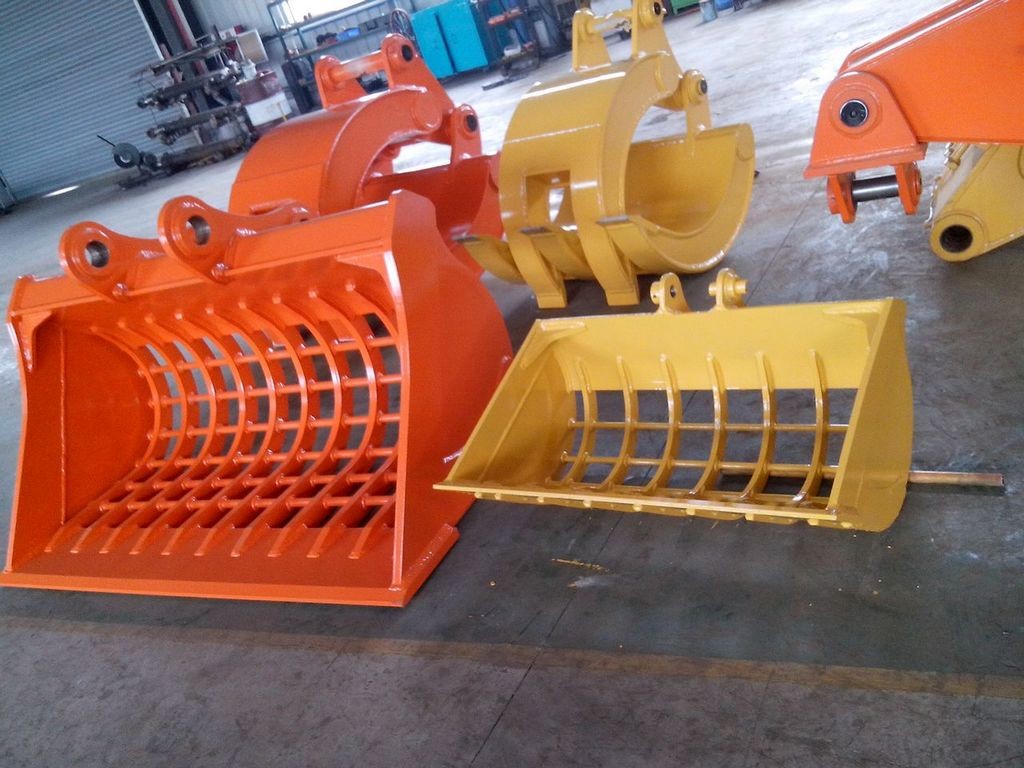

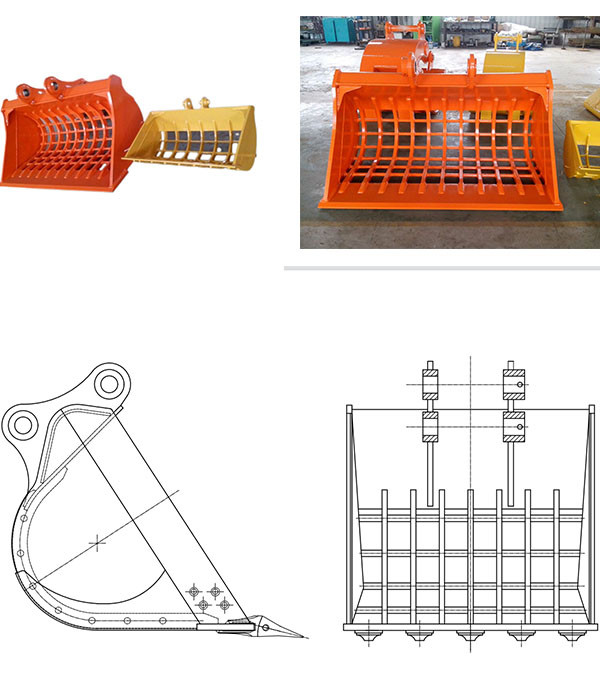

Top picks:
1. Excavator rock bucket
2. Excavator tilt bucket
3. Excavator rock grab
4. Excavator log grapple
Company Advantages


Certifications and Exhibitions


Production Advantages

Customer Feedback

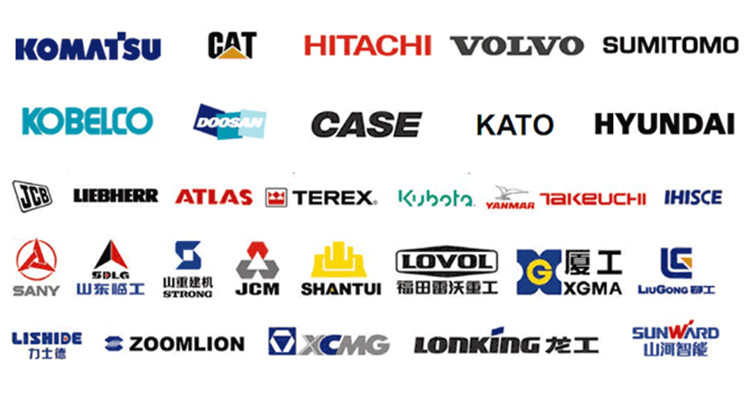
Packing&Delivery
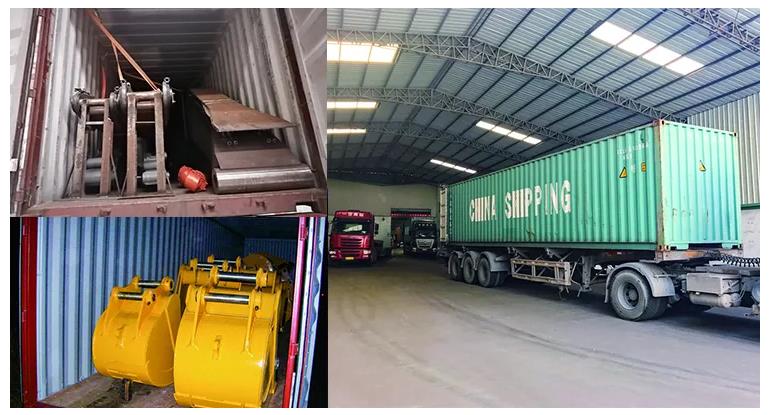
Bubble bag packaging for most products.
Wooden case for little products, like buckets.
Iron frame support for boom arms.
The accessaries and package of excavator long boom arm are
subjected to our final confirmation.























